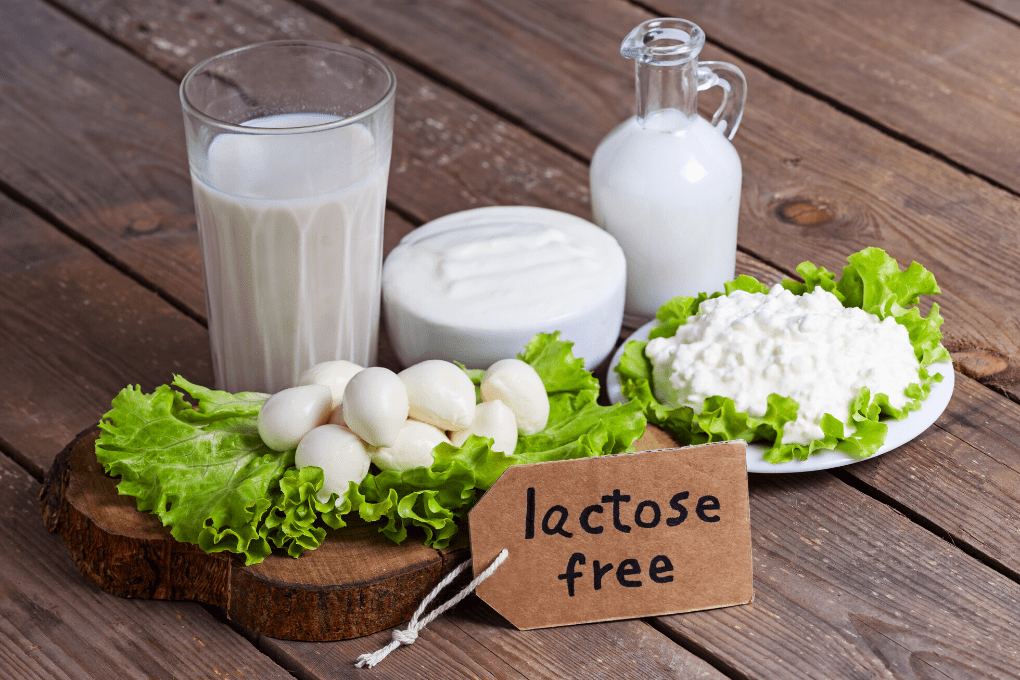Lactose Intolerance Definition & Meaning
Lactose intolerance is a group of digestive symptoms that occur when your body cannot properly break down lactose, the sugar found in milk.
When people have lactose intolerance, it means that their body does not produce enough of an enzyme called lactase. This is the enzyme that breaks lactose down into its two individual sugars (called galactose and glucose) that the body can easily absorb.
When the lactase enzyme is not present in the correct amount, the body does not fully break down the lactose sugar. This undigested lactose moves to the large intestine where it can cause uncomfortable symptoms like bloating, cramping, gas, or diarrhea.

